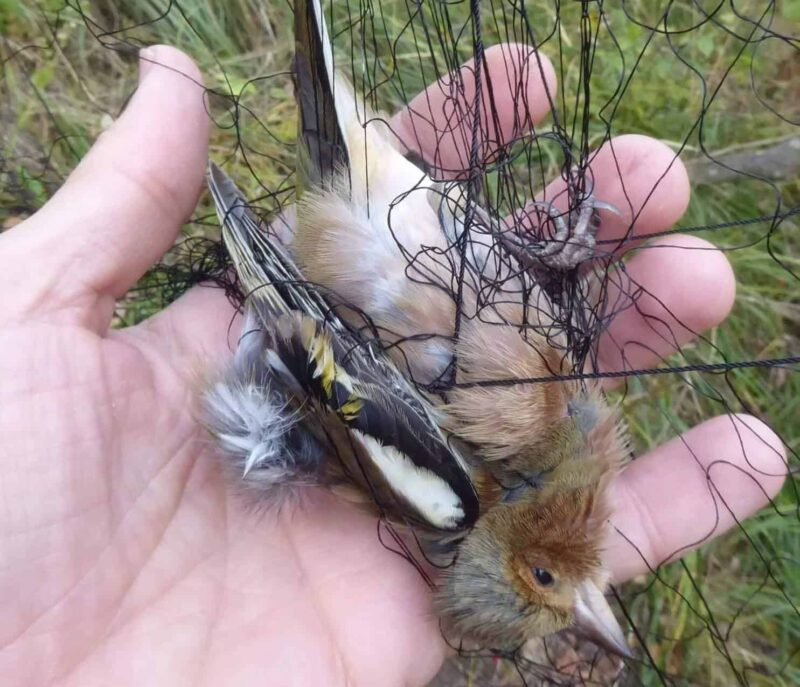Few topics are as ripe for investigation as the environment, and in-depth reporting is something long prioritized at the Earth Journalism Network. Now, thanks to growing demand and support for the kind of probing stories issues like climate change or wildlife trafficking require, EJN is leading the charge toward more investigative environmental reporting.
On May 10, EJN story grantee Matteo Civillini published an expose in National Geographic on songbird poaching in Malta and Italy, a hotbed for bird trapping, despite their protected status. To better understand the insidious nature of the trade – one in which five million birds alone are hunted each year in Italy – Civillini embedded with some of the anti-poaching activists fighting to stop it. He’s one of a handful of grantees supported by EJN’s Investigating Wildlife Trafficking project, which aids journalists in monitoring and tracking wildlife crime in Europe.
Another grantee, Denise Hruby, recently looked at how in Germany dogs are being trained to pick up on particular scents, such as fur and reptiles, as customs agents seek to battle the trafficking of endangered species.
In Africa, thanks to an EJN grant, our partners at InfoNile carried out a ground-breaking investigation of Sudan’s oil industry and the damage it’s causing to local communities and ecosystems, particularly in West Kordofan Province. The story was first published in The Niles and the multimedia investigation also appears on InfoNile.
We’ve also published several stories in recent weeks from our special reporting project looking at the illegal trafficking of pangolins, scaly anteaters prized largely in Asia for their meat and scales, the latter of which are used in traditional medicine. In this piece, journalist Alexis Kriel investigates how Nigeria is feeding China’s demand for these endangered mammals, putting them increasingly at risk of extinction. Pangolins in Pakistan are also falling victim to Chinese demand, particularly as new trades routes allow wildlife trafficking to flourish.
And in this story out of South Asia, a team of reporters from The Third Pole explores how stronger enforcement is needed to stop the trafficking of pangolins. Using several graphic features to illustrate the extent of the problem, the story probes findings from researchers who say the growing demand for pangolin products has contributed to making it the most heavily trafficked mammal on the planet. Yet without clear population estimates, the impact of the trade on the species is uncertain.
Next up in our series are investigations out of Africa and Thailand. Check out two of our earlier stories on threats facing the pangolin: In a race to save the pangolin, Philippine researchers reach out to local communities and Scale of survival.
Finally, for reporters interested in diving in to the world of investigative reporting we’ve just launched a new toolkit for environmental reporters adapted from a feature by EJN Executive Director James Fahn that appeared last month on the Global Investigative Journalism Network. Broken into topics such as fossil fuels, transportation, real estate, government policies, carbon offsets, adaptation efforts, activist groups and more, the toolkit provides a brief introduction to the different investigative paths worth exploring and offers resources, suggested questions and potential avenues for investigation.
Through grants, resources, mentorship and trainings, we’ll continue to grow our support for investigative environmental reporting in the years ahead. If you like what you’ve seen or have tips or story ideas, please reach out to us at [email protected], through our Facebook page or by searching #WildEye.
(Banner Photo: Chaffinch caught in a mist net. The illegal hunting of finches has become so intensive in Malta that only a handful of the birds now breed there / Credit: CABS)
